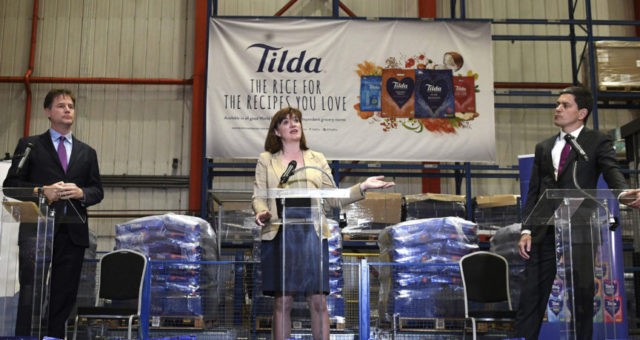BRUSSELS (AP) — Brexit talks have reached into space, with the European Union and Britain fighting over the rights that London will have to the multi-billion Galileo satellite navigation system and its security-sensitive information.
The EU’s Brexit negotiator Michel Barnier said Monday that by deciding to leave the bloc, Britain automatically cut its Galileo ties too and could renegotiate them only as a third country under less advantageous conditions.
Barnier did not address how short those conditions would fall of full EU membership.
“No decision has been already taken for the future cooperation between the U.K. and Galileo,” he told reporters in Brussels. “Obviously we will have cooperation between U.K. and Galileo, obviously, as we have for the United States or Norway.”
Reduced to a friendly third country at best has angered the British government, which sees it as a negotiating ploy in the protracted Brexit negotiations that face a fall deadline if Britain’s March 29, 2019 departure date is to proceed smoothly.
British Science Minister Sam Gyimah told the BBC “we have helped to develop the Galileo system. We want to be part of the secure elements of the system and we want U.K. industry to be able to bid for contracts on a fair basis.”
“The EU is playing hardball with us,” Gyimah said.
Barnier insisted, however, that Britain itself, as an EU member, was part of the unanimous decision that “for some information we have to protect the member states.”
The Galileo system has a top security Public Regulated Service for governments that only EU members can now fully use. Third countries and their companies cannot participate in the development of PRS security modules, Barnier said.
“Decisions have consequences,” said EU foreign affairs chief Federica Mogherini, as she and Barnier highlighted that with the 2016 Brexit decision, Britain decided to leave some 750 international agreements in one fell swoop.
Barnier, meanwhile, continued to lament the snail’s pace of progress in the EU’s Brexit talks with Britain, insisting that a crucial June 28-29 EU summit on the issue was quickly drawing close.
When queried if there was very little progress in recent weeks, he said “a little, not very little.”
“Nobody must have to underestimate the key rendezvous of June,” he added, when the EU’s 27 remaining leaders and British Prime Minister Theresa May will have their two-day summit.
On the British side, former Foreign Secretary David Miliband has joined with politicians from rival parties to call for Britain to retain the closest possible ties with the EU after Brexit.
Miliband says the U.K. should stay in the European Economic Area, made up of the EU and countries such as Norway that have access to the bloc’s single market.
At this point, May’s government insists that Britain will leave the EU’s single market and customs union so it can strike new trade deals around the world. But many businesses fear the economic harm of a so-called “hard” Brexit.
Miliband said Monday that staying in the EEA would provide “a safe harbor for Britain after Brexit.”
Miliband joined former Liberal Democrat leader Nick Clegg and Conservative legislator Nicky Morgan to urge a soft Brexit that keeps Britain in the EU’s single market.

COMMENTS
Please let us know if you're having issues with commenting.